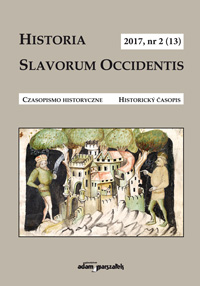Akt 5 listopada a umiędzynarodowienie sprawy polskiej podczas Wielkiej Wojny. Uwagi historyka dyplomacji
The Act of 5th November and the international nature of the Polish cause during World War I. Comments provided by a diplomacy historian
Author(s): Marek KornatContributor(s): Ewa Dratwa (Translator)
Subject(s): History, Diplomatic history, Political history, Recent History (1900 till today), Pre-WW I & WW I (1900 -1919)
Published by: Wydawnictwo Adam Marszałek
Keywords: A declaration of two emperors of 5th November 1916;the Polish cause;World War I;the February Revolution in Russia
Summary/Abstract: The author analyses the international importance of the Act of 5th November from the point of view of the future of Poland in the post-WWI international deal. The declaration of two emperors represented an “important step towards Poland’s reconstruction” (as Szymon Askenazy, a Polish historian, observed). However, the declaration failed to ultimately internationalize the Polish cause and determined itself the existence of the Polish state. The document was a product of special circumstances resulting from the fact that Germany was running out of human resources indispensable to continue the war. It was also possible because of the abortive attempts at securing peace with Russia on the basis of a territorial status quo. The declaration represented Berlin’s grand-scale political move, connecting with the history of the German political thought with assumptions originated by Bismarck and general Waldersee and revolving around the idea of establishing a small Polish state when it is necessary in the course of a war with Russia. Despite the proclaimed establishment of the Polish state by the governments in Berlin and Vienna, the Western powers (France and Great Britain) were not able to force Russia to acknowledge Poland’s independence. They assigned the government in Petrograd the right to deal with the Polish cause at its discretion i.e. to delineate the Western border of the empire according to its will once the acts of war were over. The historian therefore concludes that it was not before the February Revolution in Russia when actual possibilities opened up for the Western powers to support the Polish cause. In their policies, they did not include willingness to make the world a better place by principles of international justice but rather, they intended to maintain Russia as an allied force in the anti-German coalition at all cost.
Journal: Historia Slavorum Occidentis
- Issue Year: 2017
- Issue No: 2
- Page Range: 11-28
- Page Count: 18
- Language: Polish

